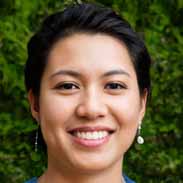Protestant Reformation Flashcards, test questions and answers
Discover flashcards, test exam answers, and assignments to help you learn more about Protestant Reformation and other subjects. Don’t miss the chance to use them for more effective college education. Use our database of questions and answers on Protestant Reformation and get quick solutions for your test.
What is Protestant Reformation?
The Protestant Reformation was a religious, social and political movement that took place in Europe in the 16th century. It began as an attempt to reform the Catholic Church, but ended up splitting Western Christianity into several branches, including Lutheranism, Reformed Churches, Anglicanism and Anabaptism. The Reformers were critical of certain aspects of the Church’s practices and beliefs and sought to reinterpret key passages from the Bible in order to make their own interpretations more palatable to them. The result was a series of theological debates which eventually led to schism within the Church.The key figure of the Protestant Reformation was Martin Luther, who famously posted his Ninety-Five Theses on the door of Wittenberg Castle church in 1517. These documents contained Luther’s criticisms of many aspects of Catholic doctrine such as papal authority and indulgences (the sale or purchase of spiritual favors). This event is often seen as marking the beginning of Protestantism.Other prominent figures associated with this movement include John Calvin, Ulrich Zwingli and Philip Melanchthon who each contributed their own reforms based on similar principles as Luther’s. These included calls for greater clerical accountability, more preaching by ministers rather than priests and more emphasis on Scripture rather than tradition or papal decrees when making decisions about faith or practice. Many other Reformers also made important contributions throughout Europe, including Jean Cauvin in France; Menno Simons in Flanders; Jacobus Arminius in Holland; Justus Menius in Germany; Johannes Oecolampadius Switzerland; Thomas Cranmer England; Huldrych Zwingli Switzerland; John Knox Scotland etc. The impact that these Reformers had on Christianity was profound – not only did it lead to a new understanding and interpretation of scripture but it also helped shape modern democracy through its emphasis on individual freedom from state control over religious matters. In addition it gave rise to new forms of worship such as sermons instead of masses being conducted by lay people instead priests which further altered traditional Christian practice across Europe at this time.









